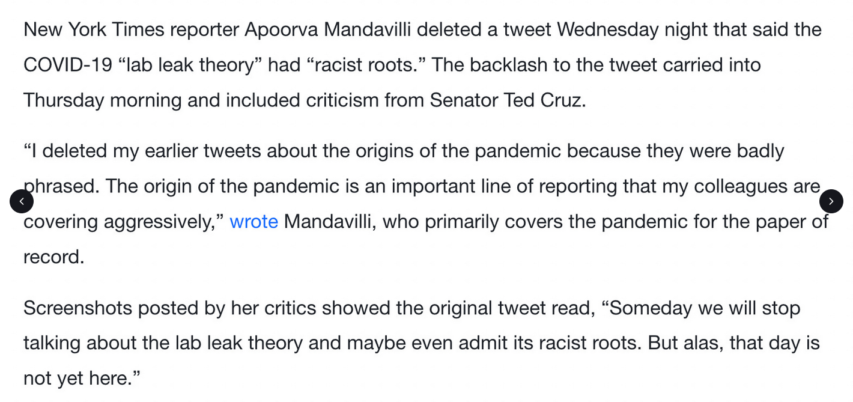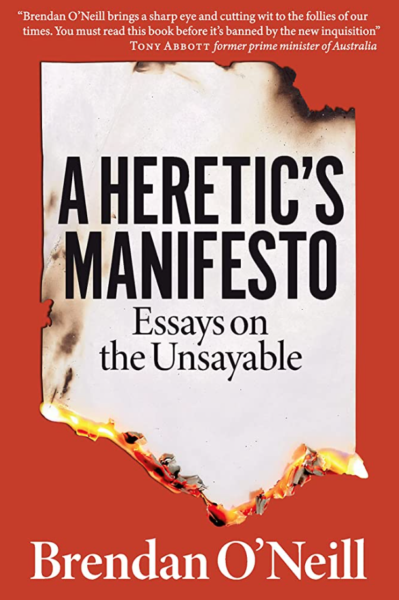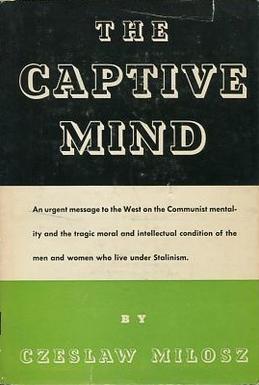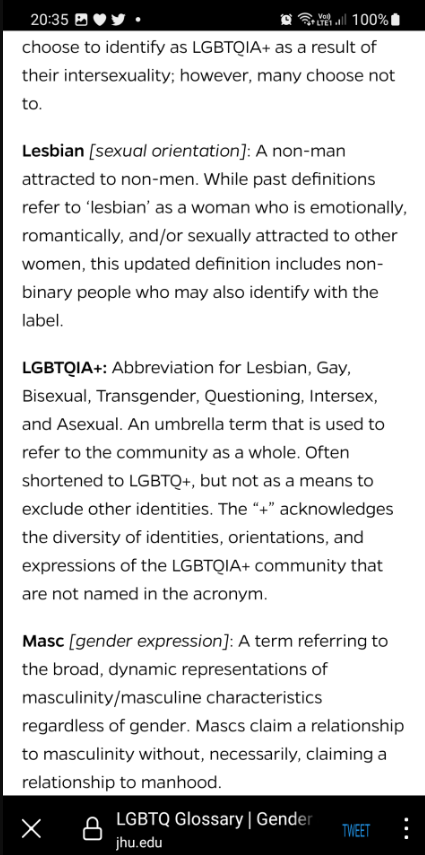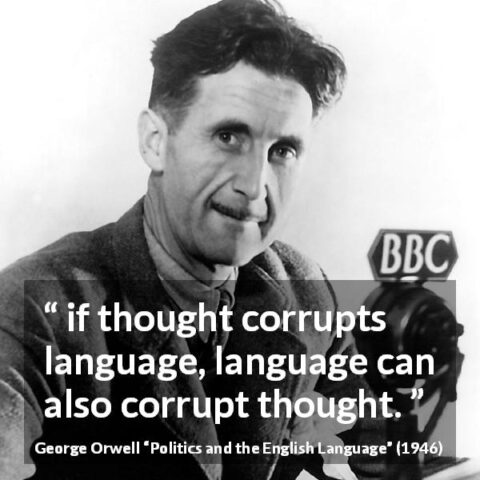I recently came across an article about Sigmund Freud’s theory of female psycho-sexual development, in which Taylor Kubota described penis envy as follows: “Women become envious of penises at a young age, when they realize boys derive more sexual pleasure from their penises than girls do from their own sexual organs. Freud said this penis envy grows over time.” This idea, which I had long disregarded and which didn’t correspond to my own experience (as a child I never saw or thought of boys’ penises; as a young woman I had no sense of lack) makes sense now in light of feminism’s decades-long attack on male sexuality. The attack is based, as feminists’ own words and policies indicate, on a febrile mix of resentment, envy, and projection in which the belief that men enjoy sex more than women (and that the enjoyment hurts women, in the typical zero-sum thinking of feminism) has fueled ever-more frenzied attempts at male neutering.
Serious psychotherapists or students of Freud should probably stop reading right now, as I am not attempting a genuine psychoanalytic analysis of feminism or indeed of penis envy, which has been widely dismissed as sexist or justified as women’s accurate recognition of men’s power. My theory — if it deserves that name — stems from the recognition that anti-sex feminism, involving the continual projection onto men of female sexual anxieties and discontents, has a far more extensive pedigree than most people realize, and that much feminist discussion and activism today take for granted that law and public policy are rightly directed towards “equalizing” not only rights or opportunities but also sexual experience itself, by prioritizing female pleasure and diminishing male.
It’s no revelation that many feminist-influenced women are hyper-alert to male advantage while being willfully blind to male disadvantage. In the arena of sexuality, where male and female most intimately and yet mysteriously interact, the irrational ferocity of feminist grievance-mongering reveals itself tellingly. Unwilling and unable to extend sympathetic understanding to male sexual difference, feminist ideology authorizes an envy-fueled anger that far surpasses legitimate caution.
A word about that legitimate caution. Throughout history, well-functioning societies have recognized the threat to civil order — and to women’s safety in particular — of male lust, and have passed laws and constructed codes of behavior to contain and direct it. Fathers and husbands have always been interested in protecting their womenfolk from sexual violence. Feminists, however, while exalting female sexuality as benign and beautiful, have repeatedly refused to recognize any manifestation of male sexuality as good. A mere glance at prominent feminist claims and policy initiatives highlights their continual misrepresentations.
Janice Fiamengo, “Do Feminists Suffer From Penis Envy?”, The Fiamengo File, 2023-03-26.
June 28, 2023
QotD: Freud and modern Feminism
June 27, 2023
“People’s patience in the face of the daily elitist provocations of Just Stop Oil is nothing short of Herculean”
The virtue-signalling lunatics of the various Extinction Rebellion sub-groups depend far more than they realize on the patience and tolerance of ordinary Britons who are just trying to get on with their daily lives. Wealthy, highly educated, privileged scions of the well-connected may very quickly learn that the well of tolerance they’re drawing from can run dry extremely quickly. Brendan O’Neill says even some of the movers and shakers of the donor class are starting realize the dangers their protest foot soldiers are running:

“Just Stop Oil Courtauld Gallery 30062022” by Just Stop Oil is licensed under CC BY-SA 4.0 .
So even one of Just Stop Oil’s wealthy donors is tiring of its classist stunts. Trevor Neilson, a co-founder of the Climate Emergency Fund, which has pumped money into Just Stop Oil, says the eco-irritants’ funereal, road-blocking marches for Mother Earth increasingly come off as “disruption for the sake of disruption“. You have “working people that are trying to get to their job, get their kid dropped off at school [and] survive a brutal cost-of-living crisis”, he says, and then along comes a “pink-haired, tattooed and pierced protester standing in front of their car”. It pisses people off, he said.
He’s not wrong. Anyone with eyes in their head can see that Just Stop Oil, and its mother movement Extinction Rebellion, is riling the workers of Britain. Imagine you’re trying to get to work to earn a crust in tough times and up pops a privately educated, possibly non-binary loon with multi-coloured hair to tell you in a voice breaking with juvenile emotion that Judgement Day is coming. The fainthearts of the liberal media are always aghast when an angry scaffolder or stressed trucker drags one of the green hysterics off the road, but I’m blown away by the restraint of the British public. People’s patience in the face of the daily elitist provocations of Just Stop Oil is nothing short of Herculean.
It is “counterproductive”, says Mr Neilson, to have pink-haired sons and daughters of privilege inconveniencing workers during a “brutal” economic downturn. Again, he’s not wrong. The class-war streak in eco-activism is undeniable. Many Extinction Rebellion types are descendants of money. Writer Harry Mount calls them “Econians”, a green twist on “Etonians”. They’re the “public-school boys and girls who rule the wokerati world”. A survey of 6,000 XR activists who brought London to a halt in April 2019 found they were “overwhelmingly middle-class [and] highly educated”. Anyone who walked through London that month will have heard “Cut carbon emissions!” being cried in cut-glass tones and understood right away that our great city was under siege by vengeful aristocrats still smarting from the Industrial Revolution.
Adam Kinzinger seems to admit that the “Patriot Front” are really federal agents
Tom Knighton on the weird MAGA-versus-“MAGA” confrontation:
A while back, a group calling itself Patriot Front showed up. Dressed in dark shirts and khaki pants, with ball caps and masks hiding their face, Patriot Front started engaging in some very … questionable behavior.
Almost immediately, they were labeled as feds.
Virtually no one believed they were who they claimed to be. They were openly Nazi-like, even providing the Hitler salute, all without the usual trappings of the neo-Nazis we typically see.
Well, recently, the Proud Boys clashed with Patriot Front.
The Proud Boys have been accused of being all kinds of things, too, including racists, yet it’s clear from the video shown that the Proud Boys aren’t fans of Patriot Front. Instead, you hear jeers calling them “racists” and “Nazis”.
The altercation got physical and a couple of the Patriot Front members were unmasked.
Enter former Congressman Adam Kinzinger, who offered up this hot take:
The video shown there is, in fact, the video in question, and Kinzinger’s comments have riled a lot of people up.
After all, he’s basically admitting that Patriot Front is a federal law enforcement operation.
Is it?
Probably, though I’m not sure Kinzinger would be read in on such an operation.
QotD: Nelson Mandela, Thabo Mbeki, and the ANC
Needless to say, this is not the story that Western media was telling me about South Africa in the late 90s. Rather they were focused on the dashing and heroic figure of Nelson Mandela. Speaking of which, where exactly was Mandela while all this was going on? Flying around Europe and America getting fêted by celebrities, mostly, and getting sidelined by his much nastier but more effective comrades, including his wife (soon to be ex-wife) Winnie. Mandela may have been president, but he barely had control over his own cabinet, let alone the country. As one of his comrades from the Robben Island prison put it: “there is something very simple and childlike about him. His moral authority, the strength of his principles and his generosity of spirit are all derived from that simplicity. But he will be easily manipulated by those who are quicker, more subtle, and more sophisticated.”
The impression Johnson gives is very much that of a man in way over his head, and when Mandela did try to assert himself, the results were usually buffoonish:
He declared that the solution to continuing violence in KwaZulu-Natal was for everyone to join the ANC … In 1995 he told a May Day rally that if the IFP continued to resist the ANC he would cut off all funding to KwaZulu-Natal, the most populous province. This was a completely unconstitutional threat which had to be quickly retracted. Similarly, when he dismissed Winnie from government he failed to read the constitution and thus had to reappoint her and later dismiss her again. Visiting Tanzania, he announced that: “We are going to sideline and even crush all dissident forces in our country.”
Mandela also made a lot of genuinely very big-hearted speeches pitching a “rainbow nation” vision of South Africa and begging whites not to flee the country, but every time the interests of justice conflicted with those of the ANC, he showed himself to be a party man first and foremost. The most revolting examples of this are two incidents in which independent prosecutors were investigating ANC atrocities (in one case a massacre of dozens of protestors, the other case an incident where some Zulus were kept in a cage inside a local ANC party HQ and tortured for months), and Mandela staked the full power of his moral authority on blocking the inquiries. In the case of the massacre, Mandela went so far as to declare that he had ordered the gunmen to shoot, which everybody knew to be a lie, but which meant that any attempt to pursue the coverup would mean taking down Mandela too. Nobody had the stomach to face that prospect, so the prosecutors dropped the case.
If Mandela was a figurehead, then who was really in charge? The answer is the main character of this book: Thabo Mbeki, the deputy president. Mbeki is a villain of almost Shakespearean proportions — paranoid, controlling, obsessive, bad with crowds yet charming in person. Even before Mandela was out of prison, he was already angling for the number two spot, shaping the narrative, quietly interposing himself between the charismatic Nobel peace prize winner and the true levers of power.
This was bad news for South Africa, because in contrast to Mandela’s “rainbow nation” optimism, Mbeki was a committed black nationalist who immediately set about purging whites from the government and looting white wealth, with little regard for whether this might kill the goose that lays the golden eggs. Johnson ascribes a psychological motivation to all this, asserting that Mbeki suffered from a crushing inferiority complex vis-a-vis the white elites, and quoting several truly bizarre and unhinged public speeches in support of his diagnosis. A more prosaic explanation would just be that like many tyrants in the making, Mbeki sought to create and elevate “new men”, men who owed him everything and whose loyalty could thereby be assured.
Whatever the case, Mbeki quickly began to insist that South Africa’s military, corporations, and government agencies bring their racial proportions into exact alignment with the demographic breakdown of the country as a whole. But as Johnson points out, this kind of affirmative action has very different effects in a country like South Africa where 75% of the population is eligible than it does in a country like the United States where only 13% of the population gets a boost. Crudely, an organization can cope with a small percentage of its staff being underqualified, or even dead weight. Sinecures are found for these people, roles where they look important but can’t do too much harm. The overall drag on efficiency is manageable, especially if every other company is working under the same constraints.
John Psmith, “REVIEW: South Africa’s Brave New World, by R.W. Johnson”, Mr. and Mrs. Psmith’s Bookshelf, 2023-03-20.
June 26, 2023
America can’t build anything these days and “it’s all Ralph Nader’s fault”
One of the readers of Scott Alexander’s Astral Codex Ten has contributed a review of Public Citizens: The Attack on Big Government and the Remaking of American Liberalism by Paul Sabin. This is one of perhaps a dozen or so anonymous reviews that Scott publishes every year with the readers voting for the best review and the names of the contributors withheld until after the voting is finished:
Today, pundits across the political spectrum bemoan America’s inability to build.
Across the country, NIMBYs and status-quo defenders exploit procedural rules to block new development, giving us a world where it takes longer to get approval for a single new building in San Francisco than it did to build the entire Empire State Building, where so-called “environmental review” is weaponized to block even obviously green initiatives like solar panels, and where new public works projects are completed years late and billions over budget — or, like California’s incredible shrinking high-speed rail, may never be completed at all.
Inevitably, such a complex set of dysfunctions must have an equally complex set of causes. It took us decades to get into this mess, and just as there’s no one simple fix, there’s no one simple inflection point in our history on which we can place all the blame.
But what if there was? What if there was, in fact, a single person we could blame for this entire state of affairs, a patsy from the past at whom we could all point our censorious fingers and shout, “It’s that guy’s fault!”
There is such a person, suggests history professor Paul Sabin in his new book Public Citizens: The Attack on Big Government and the Remaking of American Liberalism. And he isn’t isn’t a mustache-twirling villain — he’s a liberal intellectual. If you know him for anything, it’s probably for being the reason you know what a hanging chad is.
That’s right: it’s all Ralph Nader’s fault.
How’d he do it? By creating what’s now called the public interest movement: a new form of activism through which citizens force change — or, more often, block change — by suing the government. Though it was begun with the best of intentions and achieved some real good along the way, this political innovation led to the constipated governance we all complain about today.
How did a movement launched by an unassuming 30-year-old lawyer become the dominant form of activism in the country, and completely change the way our government operates?
To find out, we have to go back to a time before Ralph Nader had even hit puberty — the era of the New Deal.
[…]
It is the inherent nature of politics that no reform works forever, because the next generation of political entrepreneurs will inevitably discover new ways to bend the process to their will. Eventually, there will always be another Dick Fosbury revealing a way to work the system that no one saw coming.
Still, I do think some of the blame for the way this all panned out can be laid on Nader’s particular personal idiosyncrasies. His ironclad black-and-white view of the world, combined with his near-pathological aversion to dealmaking and compromise, made him uniquely suited to a form of activism that focused on regulatory and legal action rather than coalition-building and electoral politics. Nader was infamously rigid and inflexible, so it’s no surprise that his movement was too. But a less rules-oriented movement might have created fewer of the bureaucratic barriers that have now become a hindrance to progressive action.
Much like the movement whose story it tells, Public Citizens the book is a worthwhile project that nonetheless suffers from significant flaws. The main problem is that it can’t decide if it’s a historical narrative or a work of political theory. As a work of political theory, it doesn’t take nearly a strong enough stand — I’ve made explicit a lot of claims that are only lightly implied in the book. I think we’re making the same argument, but the book makes its argument with such a delicate touch that it’s hard to be 100% sure.
As a historical narrative, Public Citizens has a much simpler problem: it’s boring. The author writes like an academic (which, to be fair, he is), and the book is quite light on colorful details. The uncreative chapter titles (chapter three is called “Creating Public Interest Firms”) give you a taste of what the writing is like. One particularly egregious issue is how little biographical information is provided about Nader, even though the majority of the book is about him. For someone who apparently subscribes to the Great Man theory of history, the author includes surprisingly little information about the Great Men themselves. Any interesting biographical fact you read in this review — even something as basic as the fact that Nader never married—is almost certainly something I found through other sources.
Paradoxically, this book manages to be simultaneously boring and too concise. It’s over in less than 200 generously-spaced pages, and I frequently had to look stuff up on the internet to get a full understanding of what was going on. I get the sense that the author is trying to give this book mass appeal, but come on: anyone who’s willing to read a nerdy book like this is willing to read an additional hundred pages or so. Besides, Robert Caro and Ron Chernow have proven that people will read thousand-page tomes if the story is compelling and the details are juicy.
Basically, my critique of Public Citizens is like that old Catskills joke about the restaurant where the food is terrible — and the portions are too small.
The struggle for equal rights turned into the struggle to oppress others so gradually, most people didn’t notice
From the most recent Weekly Dish by Andrew Sullivan:
Many, many moons ago, when I was a marriage equality pioneer and not a total pariah among the gays, I was asked to speak at the Human Rights Campaign Fund, as it was then called. Determined as ever not to read the room, I said (paraphrasing from memory): “The goal of any civil rights movement should be to shut itself down one day. And once we get marriage equality and military service, those of us in the gay rights movement should throw a party, end the movement, and get on with our lives.”
You can imagine how well that went down. And, sure enough, 30 years later, with marriage, military service and trans equality enshrined in the law, the HRC building now has a massive, six-story high poster hanging on it: “BLACK LIVES MATTER. TRANS BLACK LIVES MATTER.”
That tells us a bit about where we are today, and how we got here.
The point I was making in the early 1990s was that liberalism knows limits. A liberal politics does not seek to impose meaning on everyone; it creates the space for individuals to choose that for themselves. It doesn’t seek to deliver the truth about anything either; it merely provides the mechanisms for the open-ended pursuit of truth. A liberal politics will seek formal equality for members of minorities; but not substantive equality — what is now called “equity”. It would not require us to come to one, single understanding of reality; it would always allow diversity of opinion and encourage free debate. Live and let live. Remember that?
Technically speaking, that makes me a liberal conservative: accepting the reality of liberal modernity (even, in my own case, being happily at home in it), while seeking to limit its illiberal overreach and utopian ambitions. And that was what I tried to sketch out in Virtually Normal. It’s a book less about homosexuality than about politics itself. It’s about a politics of going this far — and no farther. From the NYT review in 1995:
Mr. Sullivan offers his own prescription for a “politics of homosexuality” that reconciles “the best arguments of liberals and conservatives”. It is a liberal stand, Mr. Sullivan argues, in that it puts a premium on individual liberty and equality before the law, but its requirements would apply only to government policies on homosexuality, avoiding “the regulation of people’s minds and actions” in the private sphere.
Homosexual citizens absolutely deserved equal rights, but the question of homosexuality itself would — and should — always be open to dispute and debate. Since a liberal society contains both fundamentalist preachers as well as lesbian atheists, it cannot resolve the core question. So it shouldn’t try. And it should celebrate, not bemoan, this ideological diversity.
I can see why the religious fundamentalists are queasy with the settlement that came from this. They have to live in a society that accepts civil marriages for couples of the same sex. The deal is that in return, they are free to deny the morality of such marriages, to reserve religious marriage to heterosexual couples, and not be forced to participate in any way. I can also see why queer theorists are queasy as well. They don’t like the heteronormativity of civil marriage, or the respectability politics that goes with it. But they in turn are free to live their lives as “queerly” as they want in society, to create culture that seeks to subvert and radicalize.
This, in the end, is my response to all the “slippery slope” arguments about gay marriage now being raised again on the right. There is no slope in the case I made. There is a clear line: formal legal equality alongside cultural and social freedom on all sides. From my liberal conservative perspective, the gay rights movement should have shut down in 2015 after Obergefell; and the trans rights movement should have shut down in 2020 after Bostock. Once gay men and lesbians and trans people achieved legal and constitutional equality, the fight was over.
But in the movement I was once a part of, many, of course, were not liberals, let alone liberal conservatives — but radicals, who reluctantly went along with marriage equality, but itched to transform society far more comprehensively. And these radicals now control everything in the hollowed-out gay rights apparatus. Their main ticket item is a law that would replace biological sex with gender in the law, and remove protections for religious liberty: smashing the liberal settlement. Combine that with acute polarization in the Trump era, and information silos, so that many gays get their sense of reality from MSNBC and Elton John, and you can see how the spiral into illiberal madness began.
June 25, 2023
Workers will be forced to stop working to salve the consciences of university-educated elite wankers
Brendan O’Neill on the Climate Goblin’s latest stunt in Sweden:
Picture the daughter of an opera singer preventing working-class men from doing their jobs. A young woman so well-connected that she probably has presidents on speed-dial physically blocking truck drivers from doing what they do. A child of privilege gathering with her similarly comfortable pals to stop working people from working.
Well, shorn of all the fact-lite bluster about “saving the planet”, that’s exactly what Greta Thunberg’s latest eco-stunt adds up to. The pint-sized prophetess of doom is back in the headlines. This time for getting arrested in Malmo harbour in Sweden, where she and other members of the End is Nigh cult have been holding a sit-down protest to stop oil tankers from leaving and delivering their life-giving cargo to the good people of Sweden and beyond.
The photographs from this temper tantrum disguised as a political protest tell a fascinating tale of the classism and narcissism in green politics. In the middle of the road are the smug-looking youths. One has green hair. Others sport beanie hats. None has ever driven a truck, clearly. Their banners speak of defending Earth from man’s evil burning of the toxic sludge of oil. And in the background are the supposed agents of this evil – the truckers; working men idly standing by their tankers while the world’s media get shots of Greta looking sad for Gaia.
What an apt snapshot of the hierarchy of virtue in what passes for radical politics today. Working-class people reduced to background actors, non-player characters, in a drama feverishly focussed on the jumped-up angst of the privileged. Working men as mere backdrop to the eco-neuroses of the comfortably off. In the moral universe fashioned by eco-influencers and their legion fawners in the political and media elites, the irrational fears of the upper-middle class carry more weight than the living standards of the working class.
It’s a story we see repeated across every act of eco-agitation today. In the UK, the plummy activists of Just Stop Oil, all called Poppy or Edred, block roads and prevent builders, scaffolders, deliverymen, mums and others from carrying out their essential work. The fightback of working men against this imperious imposition on their right to earn a living – witness scaffolders pushing eco-irritants out of the road – has been heartening to see. As a worker at Smithfield meat market in London put it a few years back when Extinction Rebellion types stormed in to speak up for animal rights or something, why should I allow this “happy-clappy mob” to stop me from being “able to pay my bills”?
June 23, 2023
June 18, 2023
Brendan O’Neill’s new book, A Heretic’s Manifesto
This is an extract from A Heretic’s Manifesto thanks to Spiked:
Words hurt, they say. This is the ideological underpinning to so much censorship today – the idea that words wound, as a punch might wound. The imagery of violence is deployed in almost every call for censure in the 21st-century West. Speech has been reimagined as aggression, hence “microaggressions”. People speak of feeling “assaulted” by speech. “Words, like sticks and stones, can assault; they can injure; they can exclude” – that’s the thesis of Words That Wound, an influential tome published in 1993. Activists claim to feel “erased” by controversial or disagreeable utterances. Trans campaigners speak darkly of “trans erasure”, as if words from the other side of the divide, the speech of gender-critical feminists, might contain that most awesome and nullifying power of genocide.
Words make us feel “unsafe”, people say. Witness the rise and rise of Safe Spaces on university campuses, designed to ensure students’ psychic security against the terrible threat of their hearing an idea they disagree with. Safe Spaces recreate the state of childhood, complete with colouring books and ice cream, speaking to how determinedly some long to retreat from the adult world of hurtful chatter and brickbats.
The United Nations wrings its hands over “hate speech and real harm” (my emphasis). The “weaponisation of public discourse for political gain” can lead to “stigmatisation, discrimination and large-scale violence”, it says. Better keep a check on those hurtful words. One US university even maintains a list of “words that hurt“. It includes the phrase “You guys”. That scandalous utterance “erases the identities of people who are in the room” and “generalise[s] a group of people to be masculine”. Shut it down. Silence that act of violence.
Both the formal and informal punishment of words rests on the belief that they can wound. Laws in Europe claim to guard people from speech that is alarming, distressing, hurtful. The overlords of social media censor speech for “the wellbeing of our community“. Everywhere the cry goes up: words injure, they can cut like a knife, they can be used as “weapons to ambush, terrorise, wound, humiliate and degrade“. And just as the law protects us from such dreadful things when they are done to our bodies with fists and kicks, surely it should also protect us from them when they are done to our minds with words and ideas. Surely our psychic wellbeing should be accorded as much respect by the powers-that-be as our physical integrity is.
The temptation of many of us who believe in freedom of speech, in the liberty of all to utter their beliefs and ideas, is to damn this claim that “words hurt” as a libel against public discourse. As a slippery untruth that is cynically designed to depict words as all-powerful, as containing so much energy, so much heat, that they can lay waste to self-esteem and even make us fret over erasure, over being wiped out entirely by that sore comment or that disturbing idea. Actually, we often say, words are just words. They’re not sticks, they’re not stones, they’re words. They won’t kill you, they won’t hurt you, you’ll be fine. They say words are a force of nature like no other, we say: “Relax. It’s just speech.”
We need to stop doing this. We need to stop countering the new censors by accusing them of exaggerating the power and the potency of words. We need to stop responding to their painting of speech as a dangerous, disorientating force by defensively pleading that words don’t wound because they’re just words. We need to stop reacting to their branding of speech as a weapon, as a tool of ambush and degradation, by effectively draining speech of its power and saying: “It’s only speech.” As if speech were a small thing, almost an insignificant thing, more likely to contain calming qualities than upsetting ones, more likely to help us overcome conflict rather than stir it up, more likely to offer a balm to your soul than to stab at it as a knife might stab at your body.
For when we do this, we play down the power of words. And that includes the power of words to wound. Words do wound. It’s true. Words hurt people, they hurt institutions, they hurt belief systems. Words make churches tremble and ideologies quake. Words inflict pain on priests and princes and ideologues. Words upend the social order. Words rip away the comforting ideas people and communities might have wrapped themselves in for decades, centuries perhaps. Words ambush the complacent and degrade the powerful. Words cause discord, angst, even conflict. Isn’t every revolution in history the offspring of words? Of ideas? Words do destabilise, they do disorientate. People are right to sometimes feel afraid of words. Words are dangerous. When they say words wound, we should say: “I agree.”
Today, “‘gender-critical’ is a jargonny way of describing the ordinary views held by the vast majority of the planet’s population”
The Quillette Editorial Board on the startling difference between LGBT activists’s views and the default view of most of humanity:
“What is feminism? Who is it for? Can men be feminists, or only allies? What is intersectionality, and must feminism be intersectional?” These are some of the questions tackled in a University of Melbourne course on the philosophy of feminism, formally designated in the university’s handbook as PHIL20046. Prospective students are informed that course content will include “a range of feminist theories, including both radical feminism and liberal feminism, and from all four ‘waves’ (with an emphasis on second wave feminism). We’ll also consider a range of applied topics like prostitution and pornography, inclusion of transwomen, theories of gender, gendered social norms, and reproductive rights.”
Content that is not included in PHIL20046, on the other hand, includes white supremacist propaganda, neo-Nazi talking points, and an approving literary exegesis of Mein Kampf. This might seem like an odd detail to note. But it is important to state for the record, given the profusion of stickers and posters recently plastered around the University of Melbourne campus, accusing the course instructor, Holly Lawford-Smith, of crafting her syllabus for the exclusive benefit of “fascists”.
Those who are familiar with the mantras of “intersectional feminism” likely won’t require an explanation for the quantum logic leap by which feminist philosophizing might be casually equated with the doctrines of Hitler, Mussolini, and Franco. But for those unschooled in such matters, the basis of complaint here is that Lawford-Smith is a “gender-critical feminist” — a term indicating one’s belief that biologically rooted differences between men and women are real; and so must be considered when marking the boundaries of female-protected spaces, such as women’s sports leagues, prisons, and domestic-violence centres.
Which is to say that “gender-critical” is a jargonny way of describing the ordinary views held by the vast majority of the planet’s population. And it speaks to the shocking extent of academia’s radicalization that Lawford-Smith’s belief in biological science would be regarded as the academic equivalent of a Nazi salute.
Gender-critical feminists trace their roots to the radical-feminism movement of the 1960s. They often focus on the pernicious effects of gender stereotypes; and critique the industries that profit from women’s pain, such as pornography. This kind of analysis focuses attention on the hardships that have historically gone along with existing as a woman. It also focuses attention on the real policy solutions required to address such hardships, including, where necessary, the maintenance of safe single-sex spaces. As one might assume, gender-critical feminists typically have little time for men who, having recently announced the discovery of some soul-like spark of womanhood within them, commence hectoring women about the imperfect nature of their intersectional feminism.
Gender crits speak their mind at their professional peril. In 2021, Kathleen Stock, a British analytic philosopher, was forced to abandon her academic position at Sussex University following a prolonged harassment campaign. Like other prominent gender-critical intellectuals, Stock is perfectly forthright about her support for the rights of trans people to live, study, and work as they please, free from discrimination and harassment — while also being equally forthright about the plain fact that transwomen are not literal women. As a consequence of expressing such (again, widely held) views, Stock was advised to install CCTV cameras in her home and to venture onto campus only when accompanied by bodyguards.
June 17, 2023
QotD: Civil War 2: Electric Boogaloo
I used to think there’d be no Civil War II: Electric Boogaloo in this country because nobody had any real reason to fight. The Left (retaining that term strictly for convenience) don’t know what they want. They have never known. Flipping cars and lighting shit on fire is the sum total of their political philosophy. As we call it around here, the Great Inversion — whatever is, is wrong, and since there’s a level of “what is” that is impervious to even the most nonintersectional, genderfluid level of make believe, they’d rather burn the whole world down than admit it. Still, while “burn the motherfucker down!” is a fun chant with which to replace the Pledge of Allegiance — coming to your kids’ kindergarten classroom, Spring 2021 — it doesn’t really rally the troops.
The Right, meanwhile (and again, strictly for convenience), had an equally impossible fantasy, since however it manifested itself — CivNat, BoomerCon, Normie, pick your Internet-speak — it was predicated on the “Left” being physically capable of leaving well enough alone. Alas, “the motherfucker” which the Left feels compelled to burn down includes institutions, infrastructure, the foundations of empirical knowledge, along with the idea of “knowledge” itself — in short, ambient civilization. It’s not that they won’t leave you alone, gang, it’s that they can’t, since whatever is, is wrong.
Will it be a nicely organized civil war, with Ordinances of Secession and neato-looking battle flags and stirring speeches and truly excellent beards on all the general officers? Doubtful. See above. The whole “secession” schmear takes some doing, and we’re living in a world where the mere ability to walk slightly faster than a reanimated corpse is an appealing-enough fantasy to keep a tv series running for over a decade. But people these days absolutely loathe each other, to the point that, when someone finally does pull the trigger — and someone will — the killing won’t stop for a long, long, long time, McDonald’s be damned.
Severian, “Random Thoughts”, Rotten Chestnuts, 2020-12-17.
June 15, 2023
Sarah Hoyt objects to being an “imaginary creature”
Recent revisions to the quasi-official dictionary of the woke English language seem to have classified individuals like Sarah as “non-men”:
I was born female in a country that was profoundly patriarchal and, back then, patriarchal without guilt. So, it was acceptable to make jokes about women being dumber than men. And it was acceptable for teachers to assume you were dumb because female.
Most of these things amused me. It was always fun in mixed classes after the first test to watch the teacher look at my test and at the boys in the class trying to figure out what parent was so cruel as to name their son a girl’s name.
I enjoyed breaking people’s minds. And once I was known in a group or place, I was not treated as inferior. The only things that truly annoyed me were the ones I thought were arbitrary restrictions, like not going out after 8 pm alone. Took flaunting them a few times to find out they weren’t arbitrary. Or rather, they were arbitrary but since culture-wide flaunting was dangerous, and I was lucky not to pay for the flaunting with life or limb.
Yes, I went through a phase of screaming that I was just as good as any man. Then realized it was true and stopped screaming it.
Then got married and had kids, and realized I was just as good but different. I could do things men couldn’t do. Parenthood is different as a woman. And none of it mattered to my worth, just like being short and having brown hair doesn’t make me inferior to tall blonds. Just different.
And even though I’m a highly atypical woman, at the beginning of my sixth decade, I find myself completely at peace with the fact I am a woman and not apologetic at all for it.
Imagine my surprise when I found out women don’t exist. There’s only man and non-man.
This nonsense, from here, has got to stop. When you get so “inclusive” you’re excluding an entire biological sex (but curiously not the other) you might want to re-evaluate your principles. Also, your sanity.
Yes, I know, saying this makes me a TERF, which is nonsense. Maybe a TERNF, since I’ve not called myself a feminist since I was 18 and realized feminism aimed for making women “win” at men’s expense. It wasn’t aiming for equality but for “equity” and since I never needed a movement to outcompete males, I decided it was spinach and to h*ll with it.
Also I’m not trans-exclusionary. If women don’t exist, what the heck are men who are trans trans TO? Non-man? Uh … what? What are drag queens imitating? Is it just non-man?
June 14, 2023
Wednesday web-droppings
A few items that I didn’t feel required a full post of their own, but might be of interest:
- “Teacher, leave them kids alone!” – Middle schoolers staged a revolt on the day they were told to wear rainbow colors to celebrate pride. They wore red, white, and blue, and said their pronouns were “U.S.A.” Woke faculty is freaking out.
- Sir Humphrey answers the question “Is the Royal Navy still a truly ‘blue water navy’?“
- Brendan O’Neill is nostalgic for a long-distant past before everyone started sounding like off-brand Unabomber disciples.
- Tim Harford on “Giffen goods“
- Random meme of the day:
“‘Misogyny’ is overtaking ‘fascist’ in the ‘I Don’t Own a Dictionary’ championships”
Christopher Gage suspects that George Orwell lived in vain:
In his essay, “Politics and the English Language”, George Orwell lamented the decline in the standards of his mother tongue.
For Orwell, all around him lay the evidence of decay. Orwell argued sloppy language came from and led to sloppy thinking:
A man may take to drink because he feels himself to be a failure, and then fail all the more completely because he drinks. It is rather the same thing that is happening to the English language […] It becomes ugly and inaccurate because our thoughts are foolish, but the slovenliness of our language makes it easier for us to have foolish thoughts.
With his effortless knack for saying in plain English the resonant and enduring, Orwell’s dictum is obvious as soon as uttered.
Orwell wrote that back in 1946. What would the author of Animal Farm and 1984 make of today’s standards?
“Misogyny” is overtaking “fascist” in the “I Don’t Own a Dictionary” championships.
Spend five minutes online, and you’ll encounter words defined in their starkest definitions. Words like “misogyny”, “misandry”, and “narcissist”, once possessed specific meanings. Now they mean whatever the speaker claims they mean.
The beauty of the English language lies in its precision. Sadly, those who populate the land which spawned the English language wield the language with all the grace and precision of a meat hook.
According to The Guardian, the recent Finnish election was suppurated with misogyny and fascism.
In that election, the one debased in misogyny and fascism, the losing incumbent Sanna Marin, a woman, won more seats in parliament than in 2019. The three candidates with the most votes — Riikka Purra, Sanna Marin and Elina Valtonen — were all women. Women lead seven of the nine parties returned to parliament — including the “far-right” Finns Party.
The Guardian didn’t permit reality to spoil a good headline.
As Orwell had it, “Fascism” is a hollow word. In the essay mentioned above, he said: “The word Fascism has now no meaning except in so far as it signifies ‘something not desirable’.” In modern parlance, the same applies to “misogyny”. “misandry”, “narcissism”, “gaslighting”, and just about every other buzzword shoehorned into a HuffPost headline.







